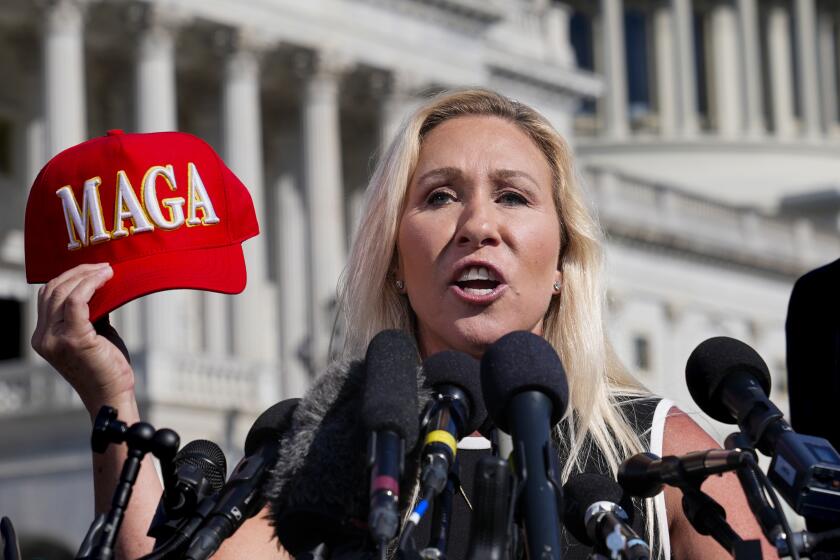FBI director defends secret surveillance programs
WASHINGTON — FBI Director Robert Mueller III strongly defended the government’s secret collection of millions of phone logs and emails Thursday, saying federal judges, Congress and the Department of Justice inspector general’s office have all approved the program over recent years.
Mueller, testifying before the House Judiciary Committee, also said that he expects alleged National Security Agency leaker Edward Snowden to be arrested and prosecuted in this country. “He is the subject of an ongoing criminal investigation,” Mueller said. “We are taking all necessary steps to hold this person responsible for these disclosures.”
The FBI chief said the NSA programs are “in full compliance with the law,” that FISA judges have approved the collections, Congress has been repeatedly briefed on the programs and the inspector general has reviewed it.
PHOTOS: 2013’s top political scenes
But Rep. John Conyers Jr. of Michigan, the ranking Democrat on the panel, said he continues to be concerned about the “over breadth” of the program and plans to introduce legislation Friday to sharply narrow the program.
“This puts everybody in the United States of America subject to this kind of thing,” Conyers said. “We have a feeling that it’s not necessary nor does it serve a legitimate, legal, protective service.”
Mueller disagreed, and told the story of Sept. 11, 2001, hijacker Khalid al-Midhar, a muscleman on the plane that hit the Pentagon that morning.
Mueller said that during the period before the terror attacks, U.S. intelligence officials were following but “lost track” of al-Midhar and then “at the same time intelligence agencies found an Al Qaeda safe house in Yemen.”
He said agents had the phone number but did not know who was calling into the safe house. “We came to find out later that the person was al-Midhar who was in this country in San Diego at that time,” Mueller said.
If officials had the authority then to scoop up phone records, Mueller said, “we would have been able to identify that particular person at that time. That is why we have this program and how important it is.”
But Conyers remained unimpressed. “I’m not persuaded that makes it OK to collect every phone call,” he said.
Follow Politics Now on Twitter and Facebook
More to Read
Get the L.A. Times Politics newsletter
Deeply reported insights into legislation, politics and policy from Sacramento, Washington and beyond. In your inbox three times per week.
You may occasionally receive promotional content from the Los Angeles Times.







